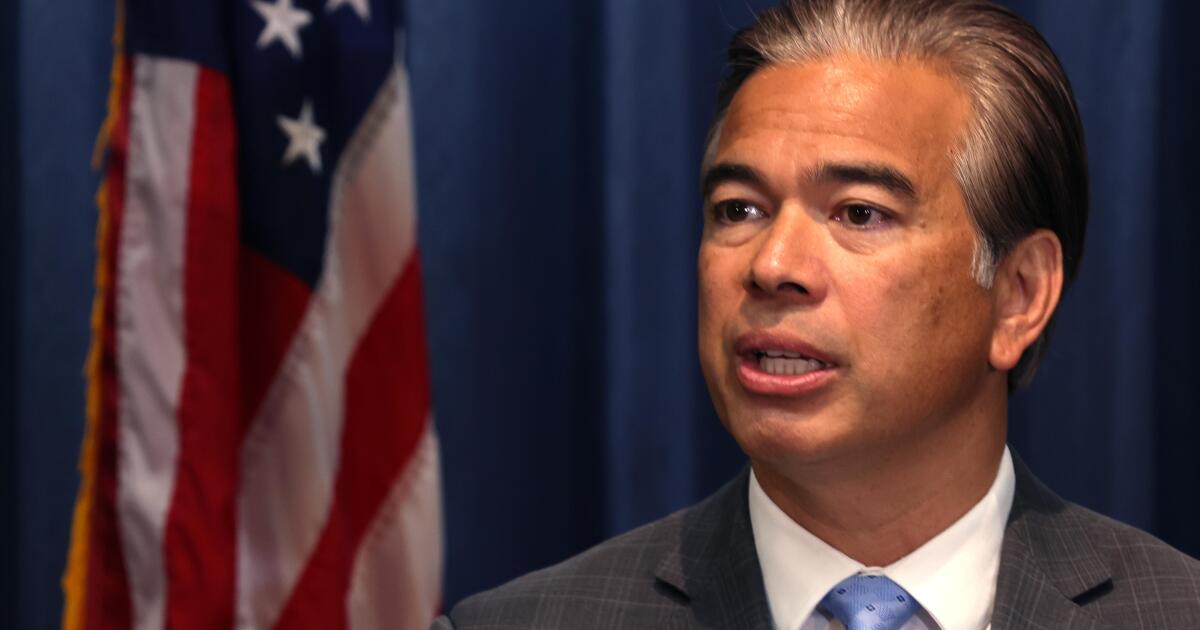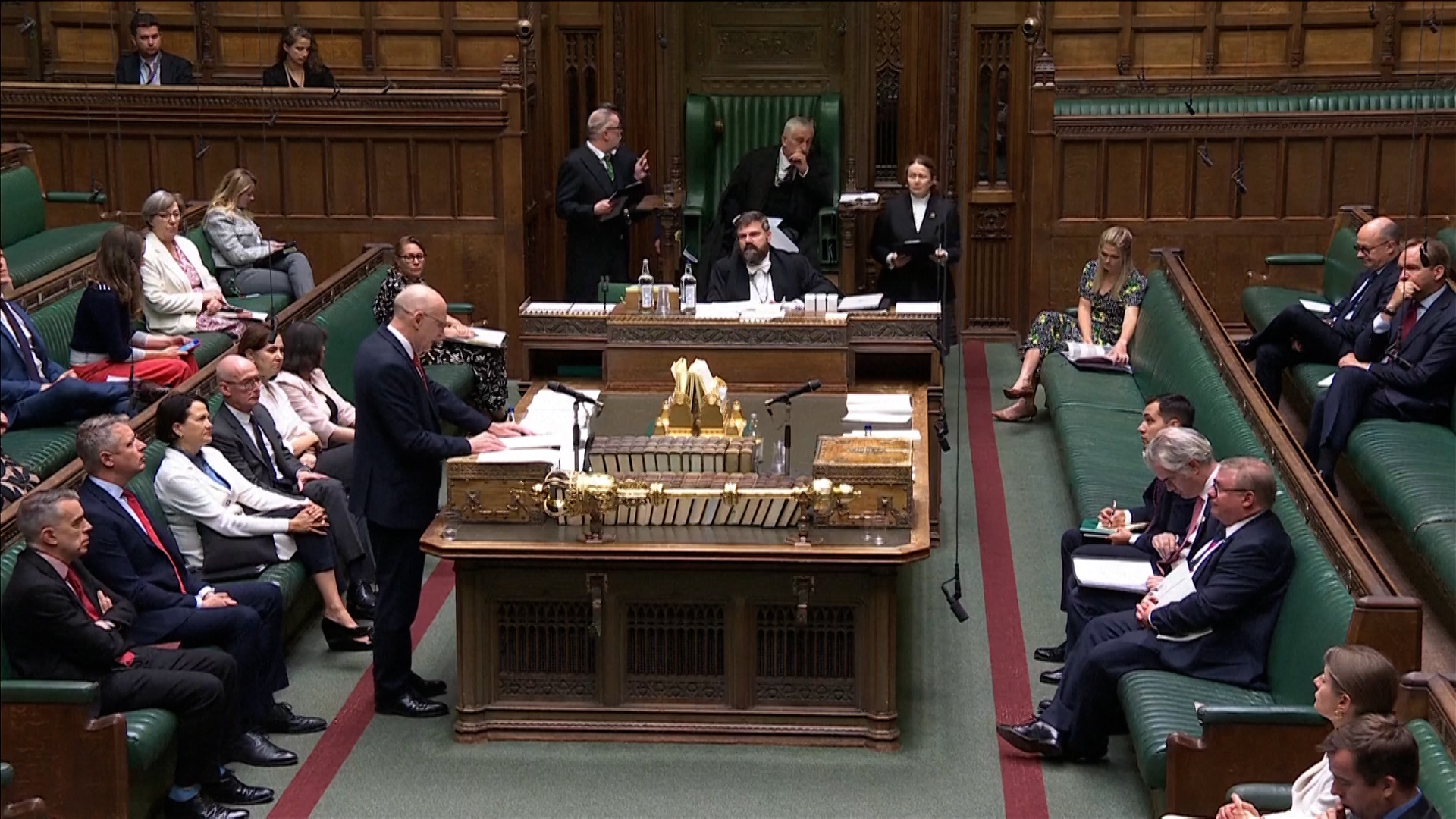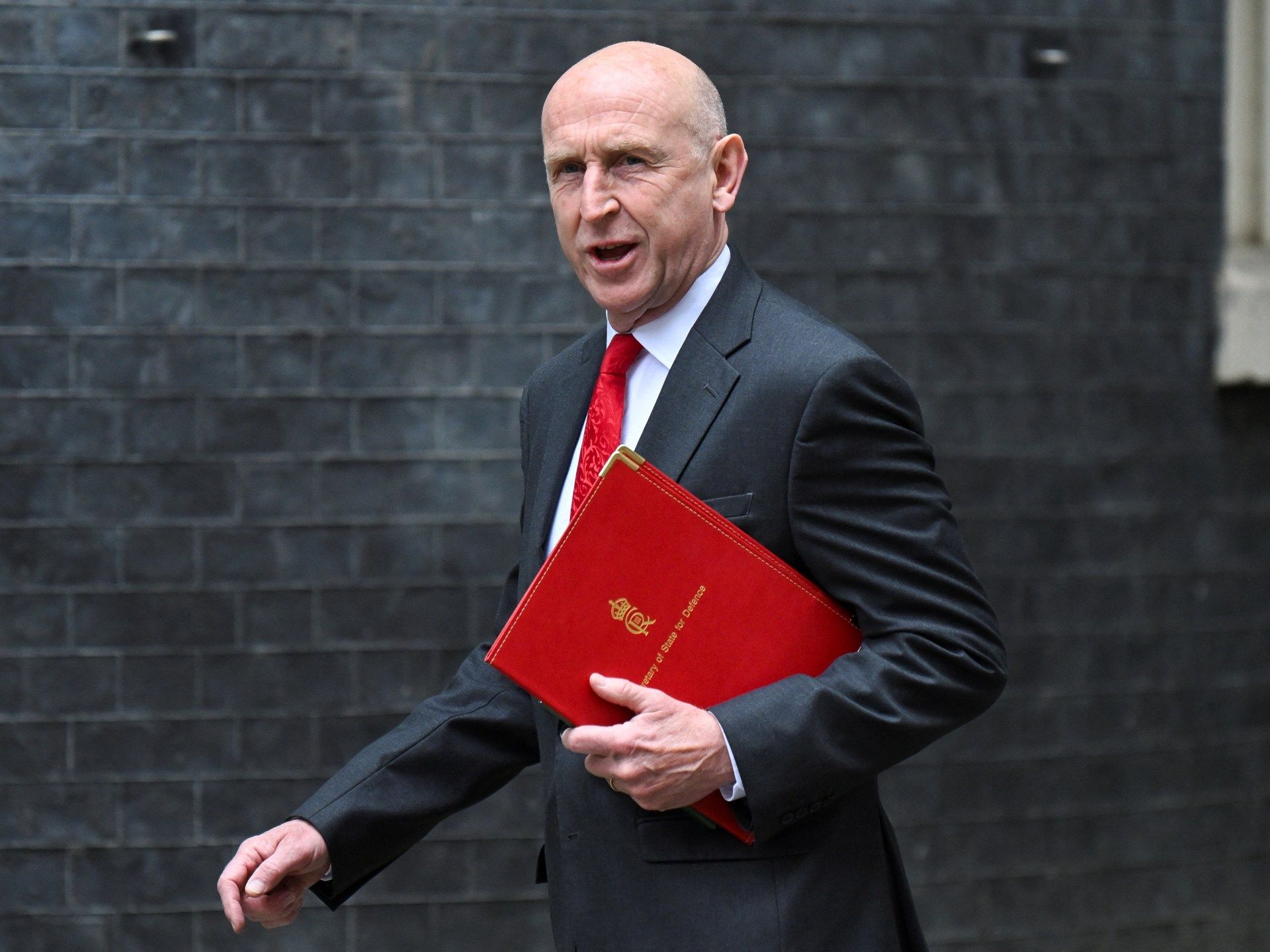California, other states sue over USDA demand for SNAP recipients’ data
California and a coalition of other liberal-led states filed a federal lawsuit Monday challenging the U.S. Department of Agriculture’s recent demand that they turn over the personal information of millions of people receiving federal food assistance through the Supplemental Nutrition Assistance Program.
USDA Secretary Brooke L. Rollins informed states earlier this month that they would have to transmit the data to the USDA’s Food and Nutrition Service to comply with an executive order by President Trump. That order demanded that Trump’s agency appointees receive “full and prompt access” to all data associated with federal programs, so that they might identify and eliminate “waste, fraud, and abuse.”
Last week, USDA officials informed state SNAP directors that the deadline for submitting the data is Wednesday and that failure to comply “may trigger noncompliance procedures” — including the withholding of funds.
In announcing the states’ lawsuit Monday, California Atty. Gen. Rob Bonta said the “unprecedented” demand “violates all kinds of state and federal privacy laws” and “further breaks the trust between the federal government and the people it serves.”
Bonta’s office noted that states have administered the equivalent of SNAP benefits — formerly known as food stamps — for 60 years. It said that California alone receives “roughly $1 billion a year” to administer the program in the state and that “any delay in that funding could be catastrophic for the state and its residents who rely on SNAP to put food on the table.”
The USDA has demanded data for all current and former SNAP recipients since the start of 2020, including “all household group members names, dates of birth, social security numbers, residential and mailing addresses,” as well as “transactional records from each household” that show the dollar amounts they spent and where. It said it may also collect information about people’s income.
Meanwhile, a Privacy Impact Assessment published by the agency showed that it also is collecting data on people’s education, employment, immigration status and citizenship.
The USDA and other Trump administration officials have said the initiative will save taxpayers money by eliminating “information silos” that allow inefficiencies and fraud to fester in federal programs.
“It is imperative that USDA eliminates bureaucratic duplication and inefficiency and enhances the government’s ability not only to have point-in-time information but also to detect overpayments and fraud,” Rollins wrote in a July 9 letter to the states.
The Trump administration, which is pursuing what Trump has called the biggest mass deportation of undocumented immigrants in the nation’s history, has requested sensitive data from other federal programs and services — including Medicaid and the IRS — to share with immigration officials.
That has raised alarm among Democrats, who have said that tying such services to immigration enforcement will put people’s health at risk and decrease tax revenue. California sued the Trump administration earlier this month for sharing Medicaid data with Immigration and Customs Enforcement.
On Monday, Bonta raised similar alarms about the administration’s demand for SNAP data, questioning what it will do with the information and how families that rely on such assistance will react. His office said it appeared to be “the next step” in the administration’s anti-immigrant campaign.
“President Trump continues to weaponize private and sensitive personal information — not to root out fraud, but to create a culture of fear where people are unwilling to apply for essential services,” Bonta said. “We’re talking about kids not getting school lunch; fire victims not accessing emergency services; and other devastating, and deadly, consequences.”
Bonta said the USDA demand for SNAP benefits data is illegal under established law, and that California “will not comply” while it takes the administration to court.
“The president doesn’t get to change the rules in the middle of the game, no matter how much he may want to,” Bonta said. “While he may be comfortable breaking promises to the American people, California is not.”
The new data collection does not follow established processes for the federal government to audit state data without collecting it wholesale. During a recently concluded public comment period, Bonta and other liberal attorneys general submitted a comment arguing that the data demand violates the Privacy Act.
“USDA should rethink this flawed and unlawful proposal and instead work with the States to improve program efficiency and integrity through the robust processes already in place,” they wrote.
Last week, California and other states sued the Trump administration over new rules barring undocumented immigrants from accessing more than a dozen other federally funded benefit programs, including Head Start, short-term and emergency shelters, soup kitchens and food banks, healthcare services and adult education programs.
The states did not include USDA in that lawsuit despite its issuing a similar notice, writing that “many USDA programs are subject to an independent statutory requirement to provide certain benefits programs to everyone regardless of citizenship,” which the department’s notice said would continue to apply.
Bonta announced Monday’s lawsuit along with New York Atty. Gen. Letitia James. Joining them in the lawsuit were Kentucky Gov. Andy Beshear and the attorneys general of Arizona, Colorado, Connecticut, the District of Columbia, Delaware, Hawaii, Illinois, Maine, Maryland, Massachusetts, Michigan, Minnesota, New Jersey, New Mexico, Oregon, Rhode Island, Washington and Wisconsin, as well as the state of Kentucky.













